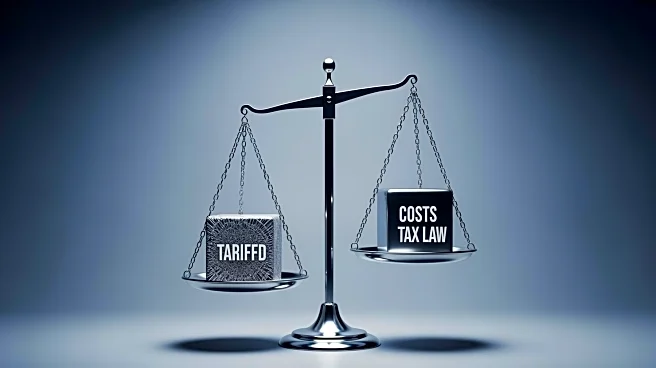What's Happening?
President Trump has proposed a plan to end the ongoing conflict between Israel and Gaza, which includes the disarmament of Hamas and a structured prisoner exchange. According to a report, the plan outlines the destruction of Hamas' weapons and offers amnesty to militants who agree to peaceful coexistence, with the option of safe passage to other countries. The plan also specifies a prisoner exchange, where Israel would release 250 prisoners serving life sentences and 1,700 Gazans detained after October 7, in exchange for the release of all Israeli hostages. Additionally, the plan calls for the establishment of an international stabilization force and a temporary transitional government in Gaza, supervised by an international body. The Palestinian Authority is expected to undergo reforms to eventually govern the Gaza Strip, paving the way for potential Palestinian statehood.
Why It's Important?
The proposed plan by President Trump is significant as it aims to address the long-standing conflict between Israel and Gaza, which has resulted in numerous casualties and geopolitical tensions. The disarmament of Hamas and the structured prisoner exchange could potentially lead to a reduction in hostilities and foster a more stable environment in the region. The involvement of an international stabilization force and transitional government indicates a move towards international cooperation in resolving the conflict. The plan's emphasis on Palestinian statehood aspirations highlights a potential shift in U.S. policy towards supporting a two-state solution, which could have far-reaching implications for Middle Eastern politics and U.S. foreign relations.
What's Next?
The next steps involve gaining approval from both Israel and Hamas, neither of which has yet agreed to the plan. The international community, including the United Nations, may play a crucial role in facilitating the proposed stabilization force and transitional government. The success of the plan will depend on the willingness of both parties to engage in dialogue and make concessions. Political leaders and civil society groups in the U.S. and abroad are likely to react to the plan, influencing its implementation and potential modifications.
Beyond the Headlines
The plan's focus on disarmament and prisoner exchange raises ethical and legal questions about the treatment of prisoners and the conditions for their release. The proposal for a transitional government and international oversight may face resistance from local factions and could challenge existing power dynamics in the region. The potential for Palestinian statehood, while aspirational, may encounter obstacles related to territorial disputes and governance capabilities. The plan's success could set a precedent for conflict resolution in other regions, highlighting the role of international cooperation in peacebuilding.








